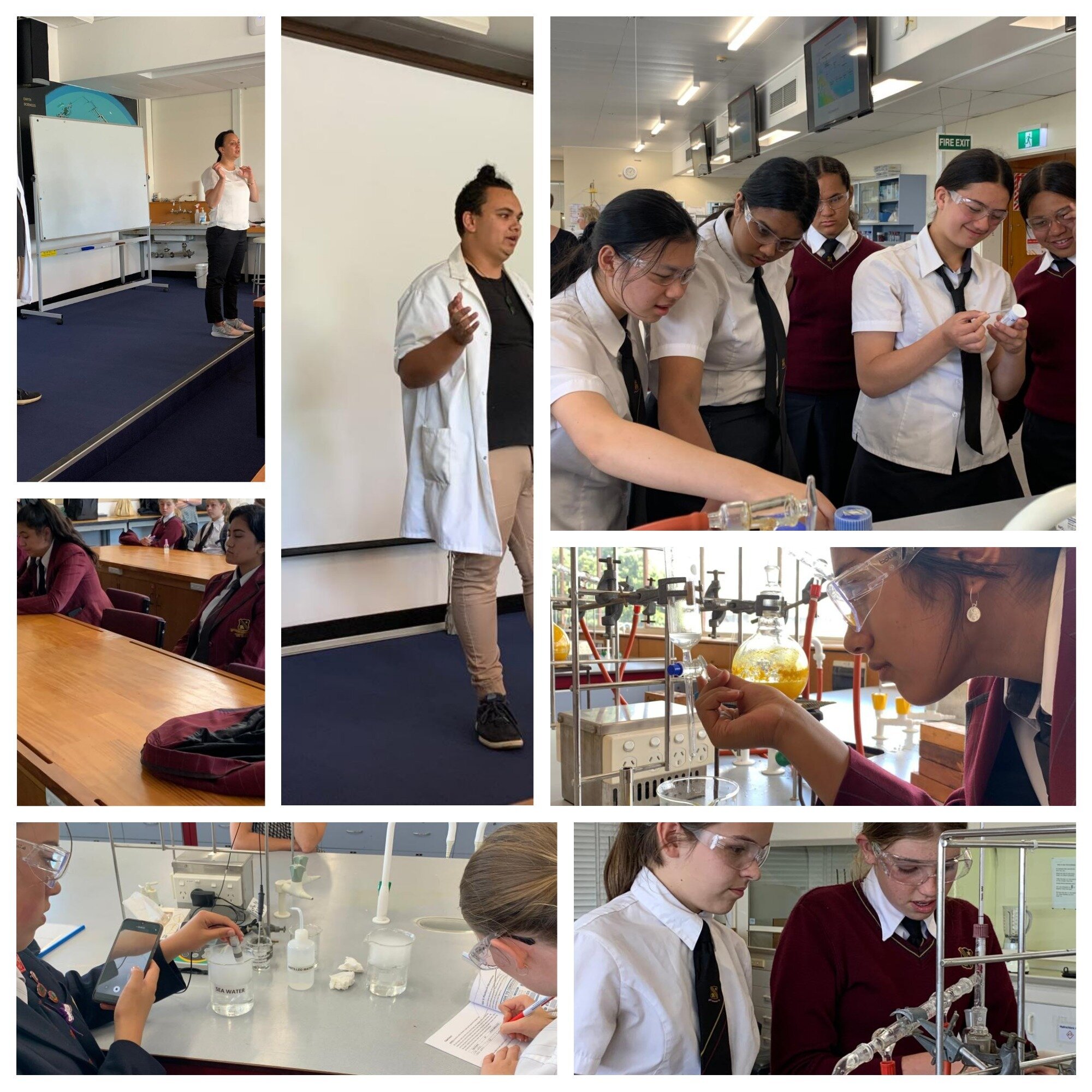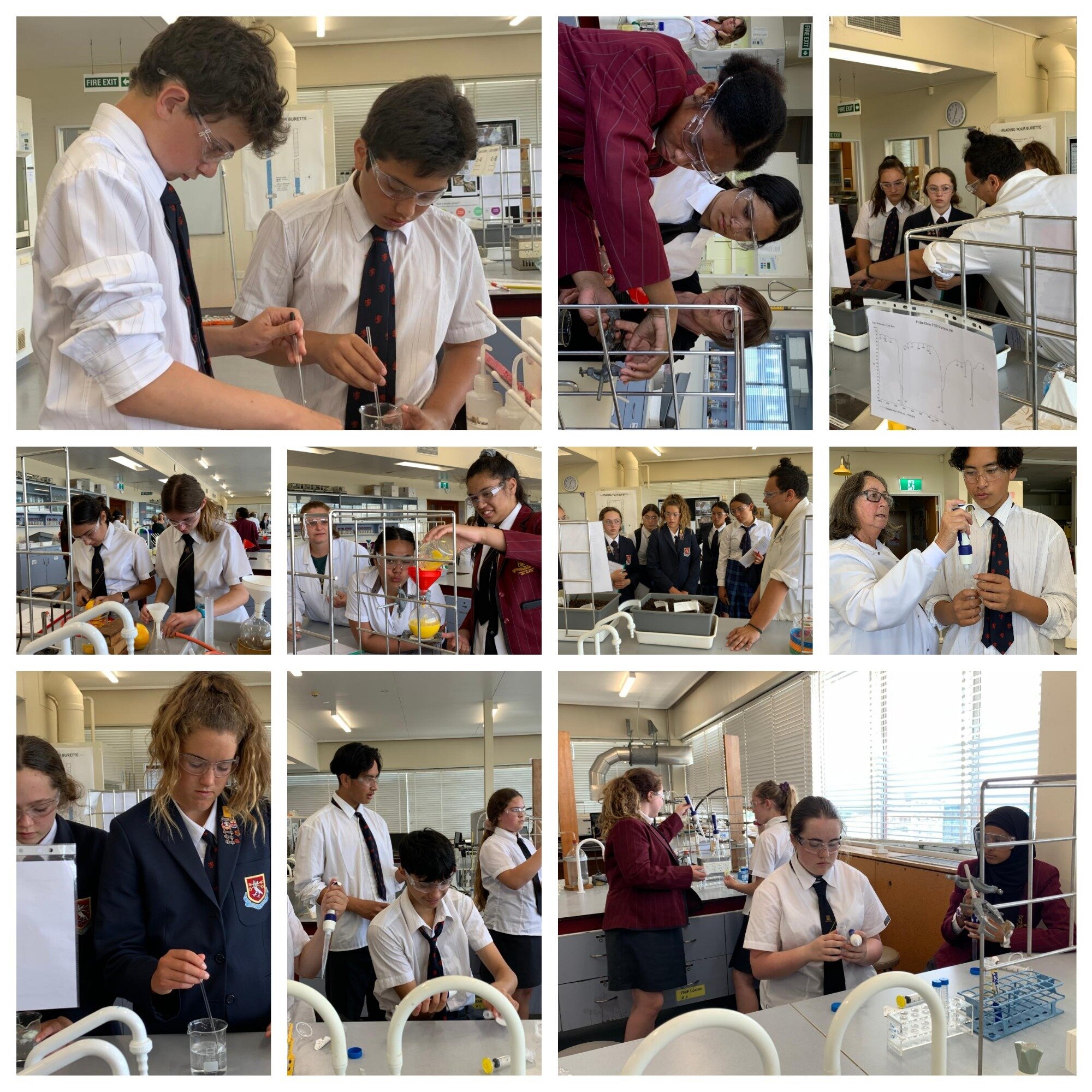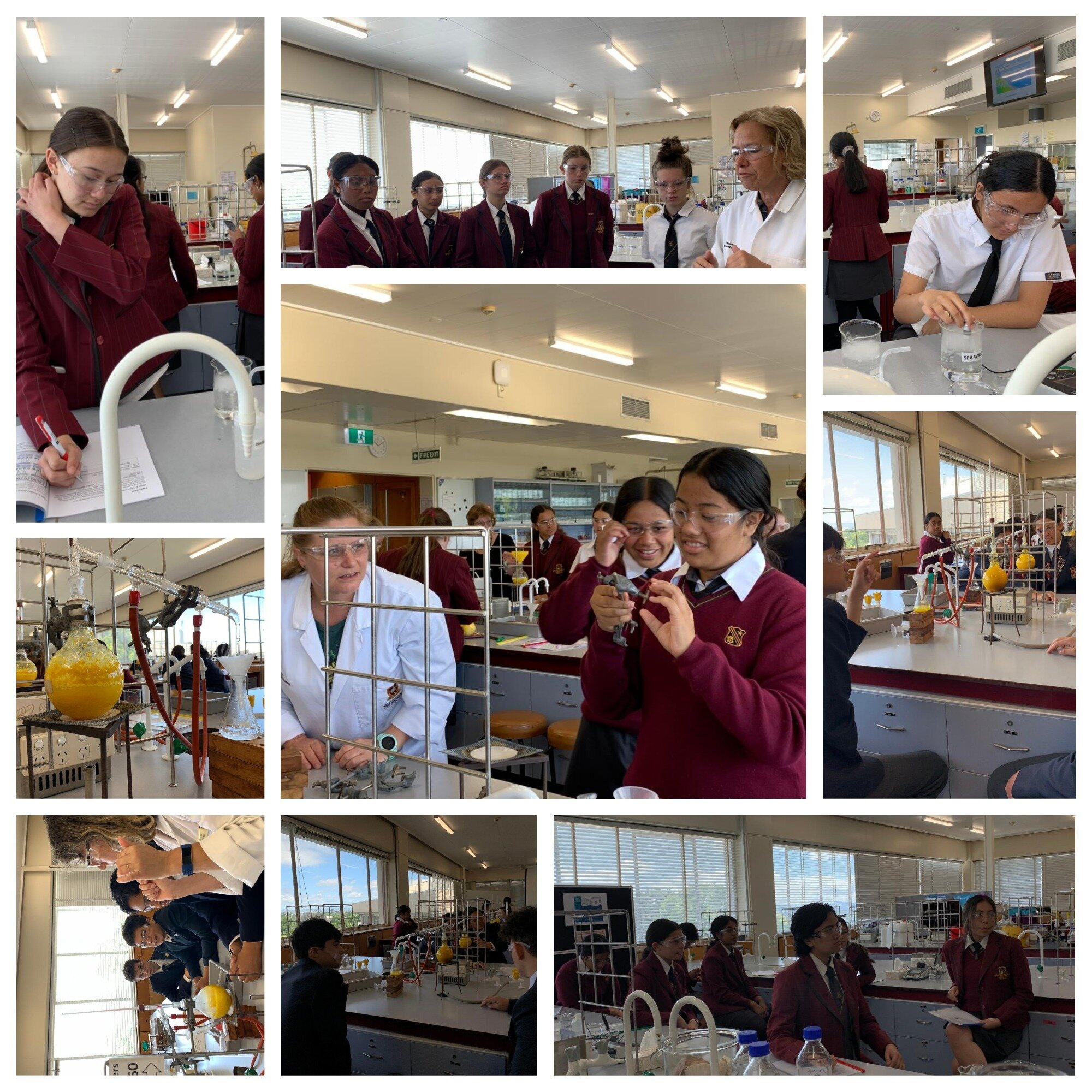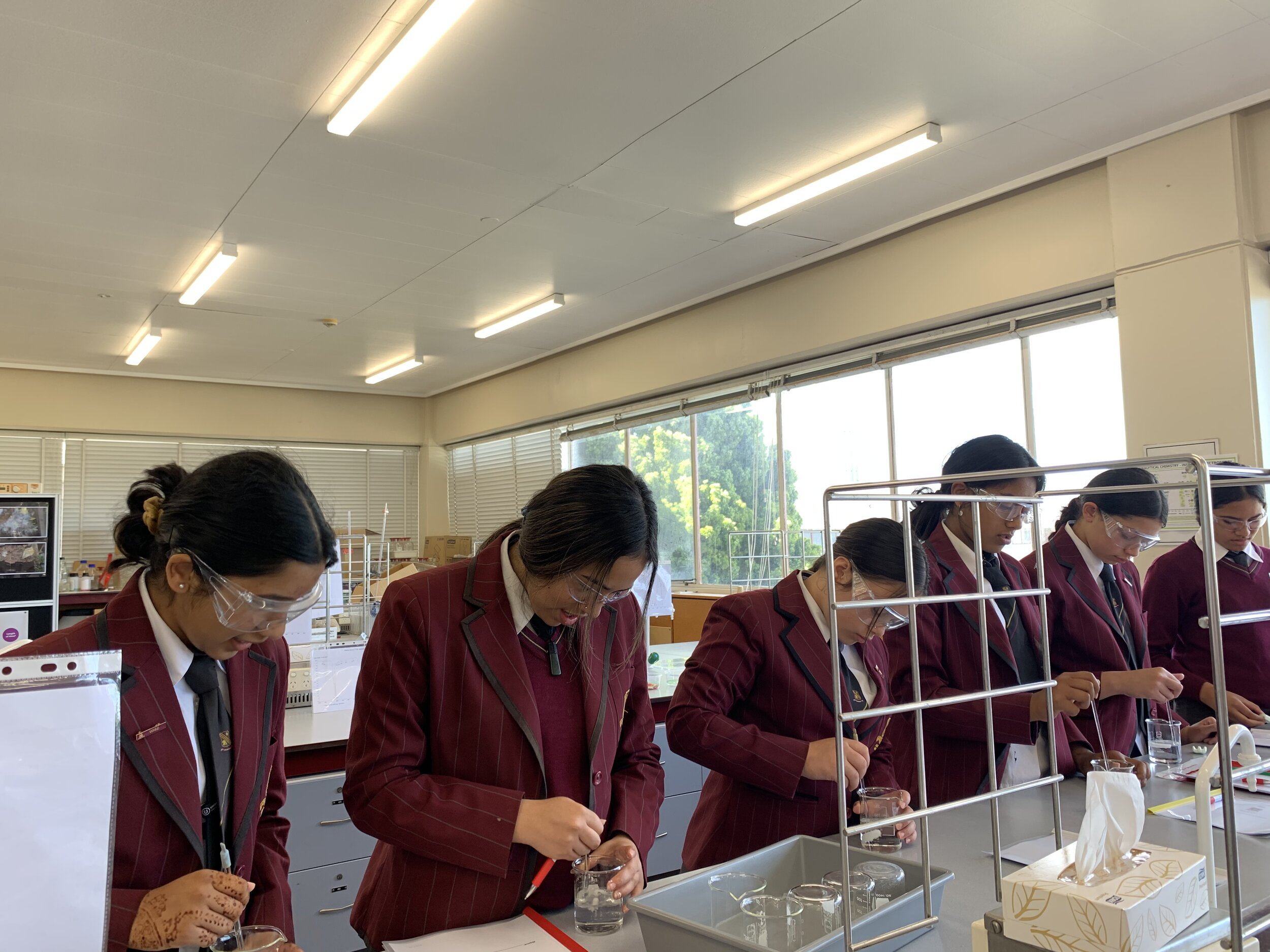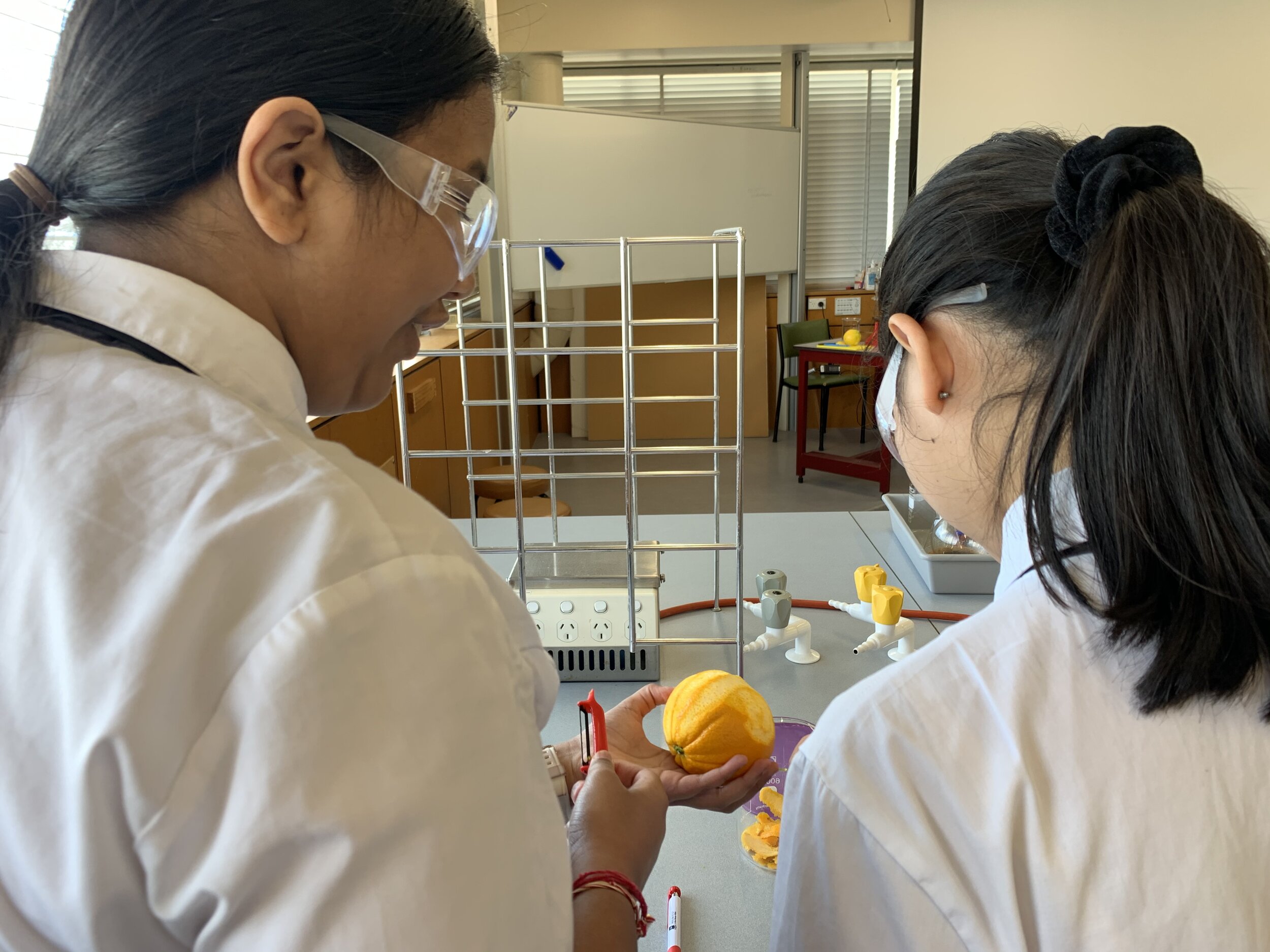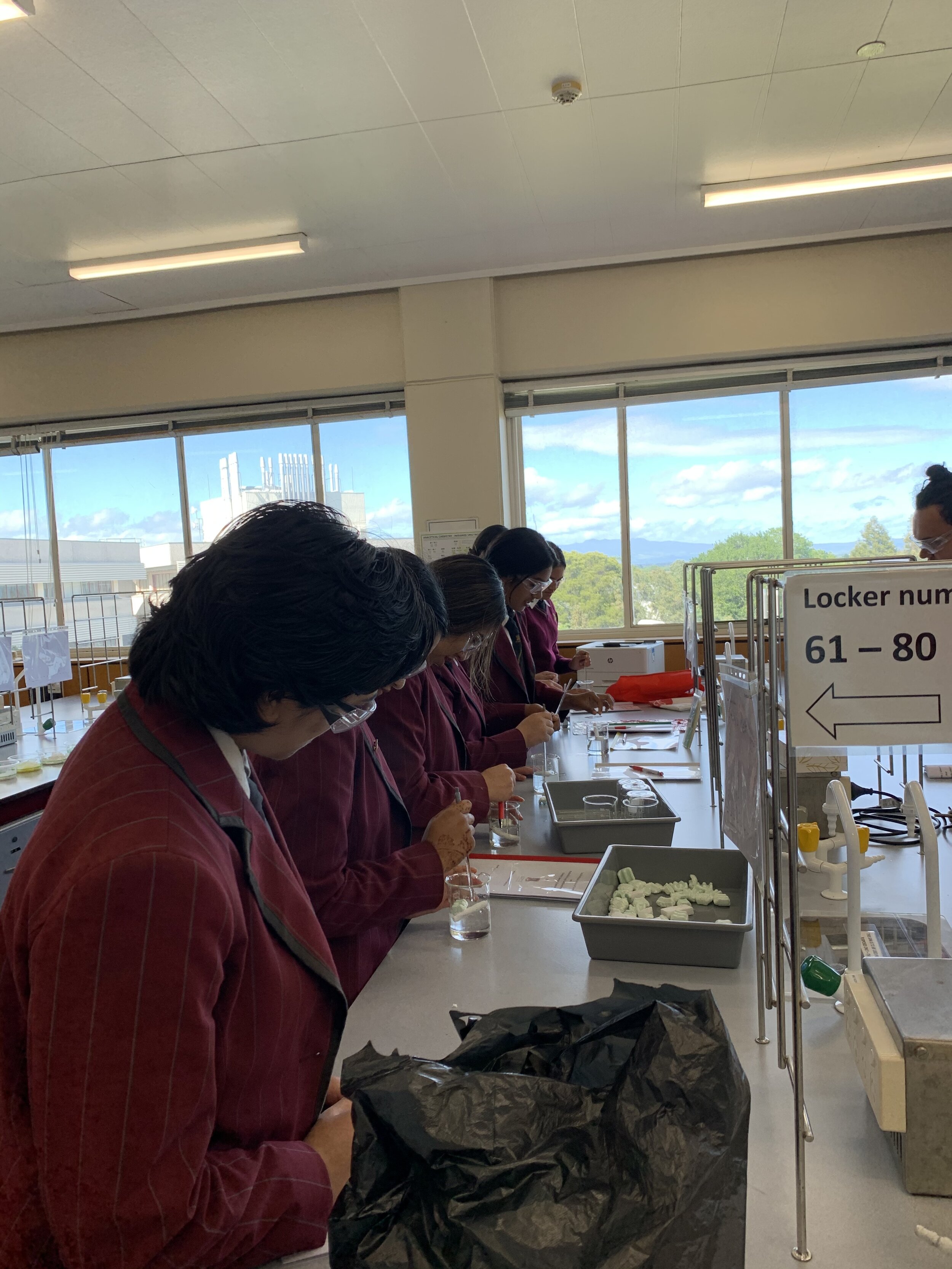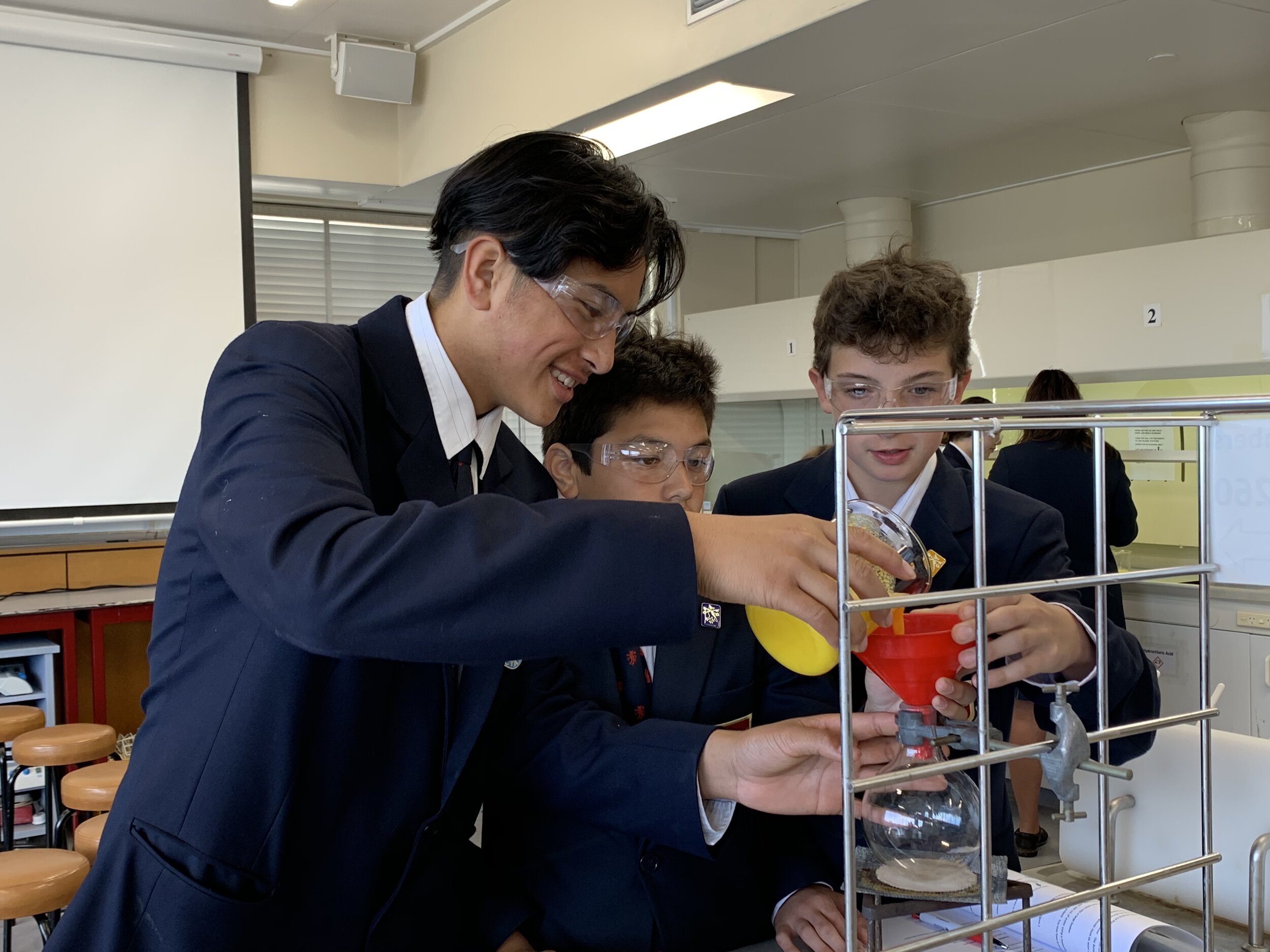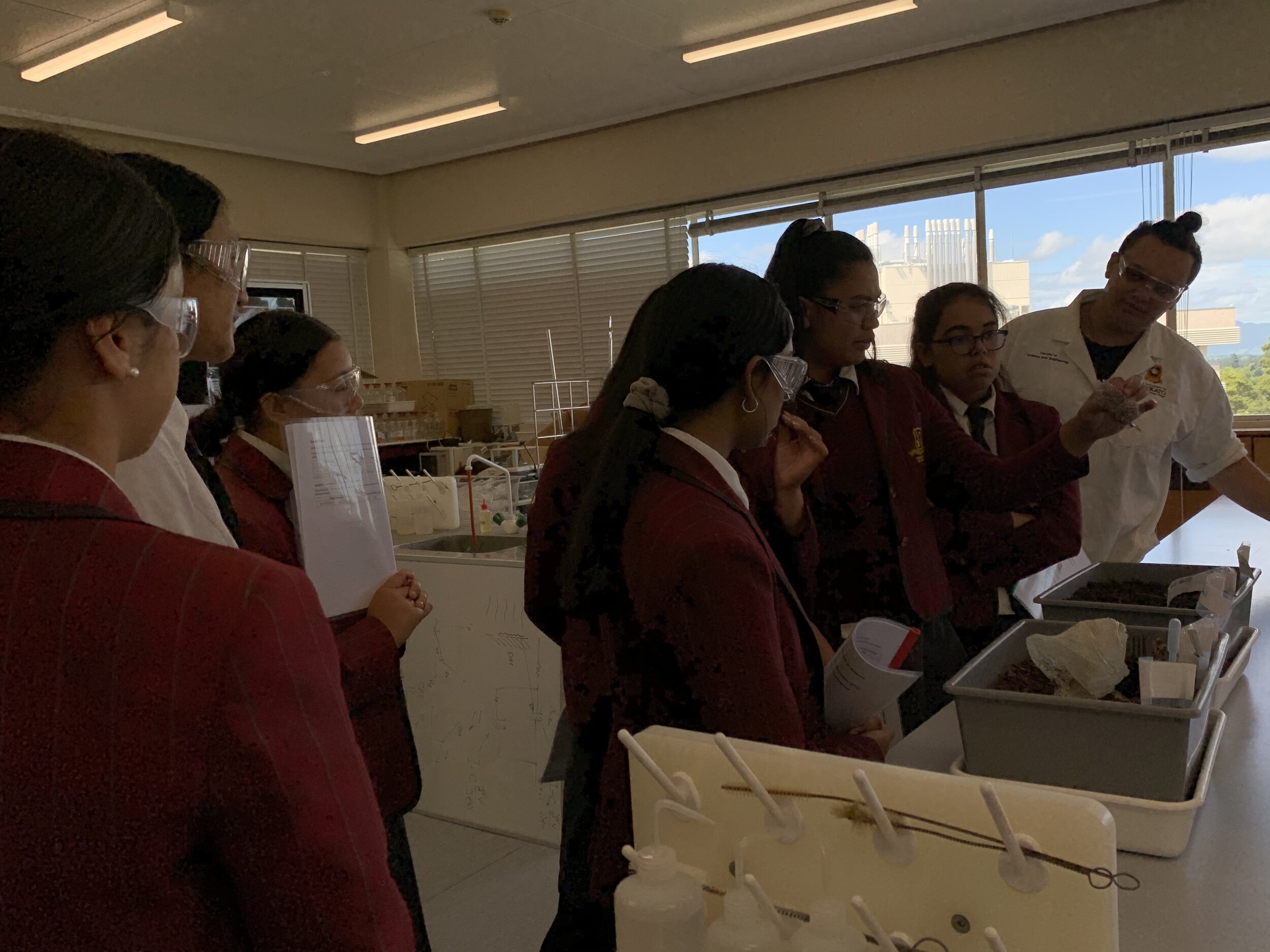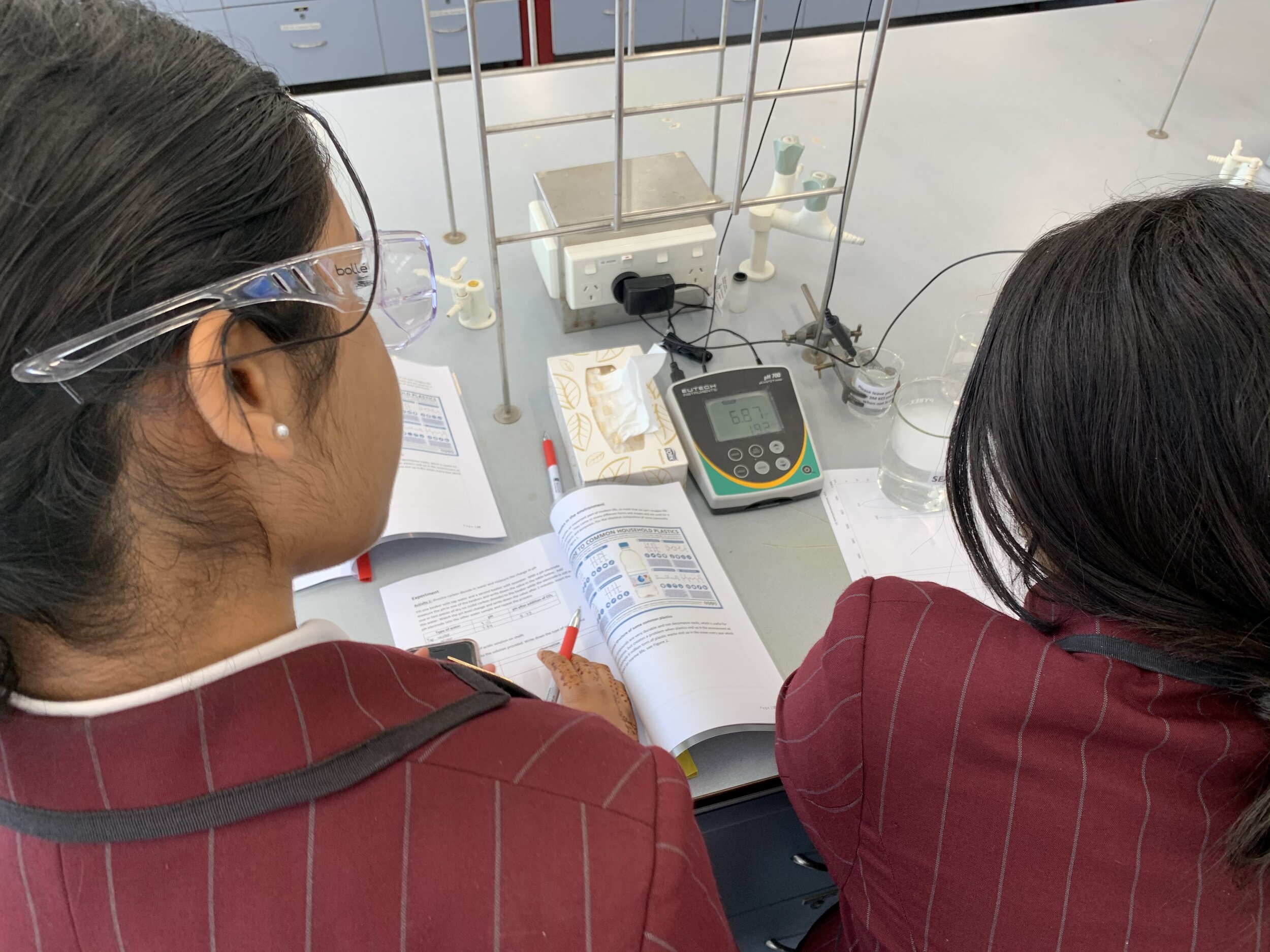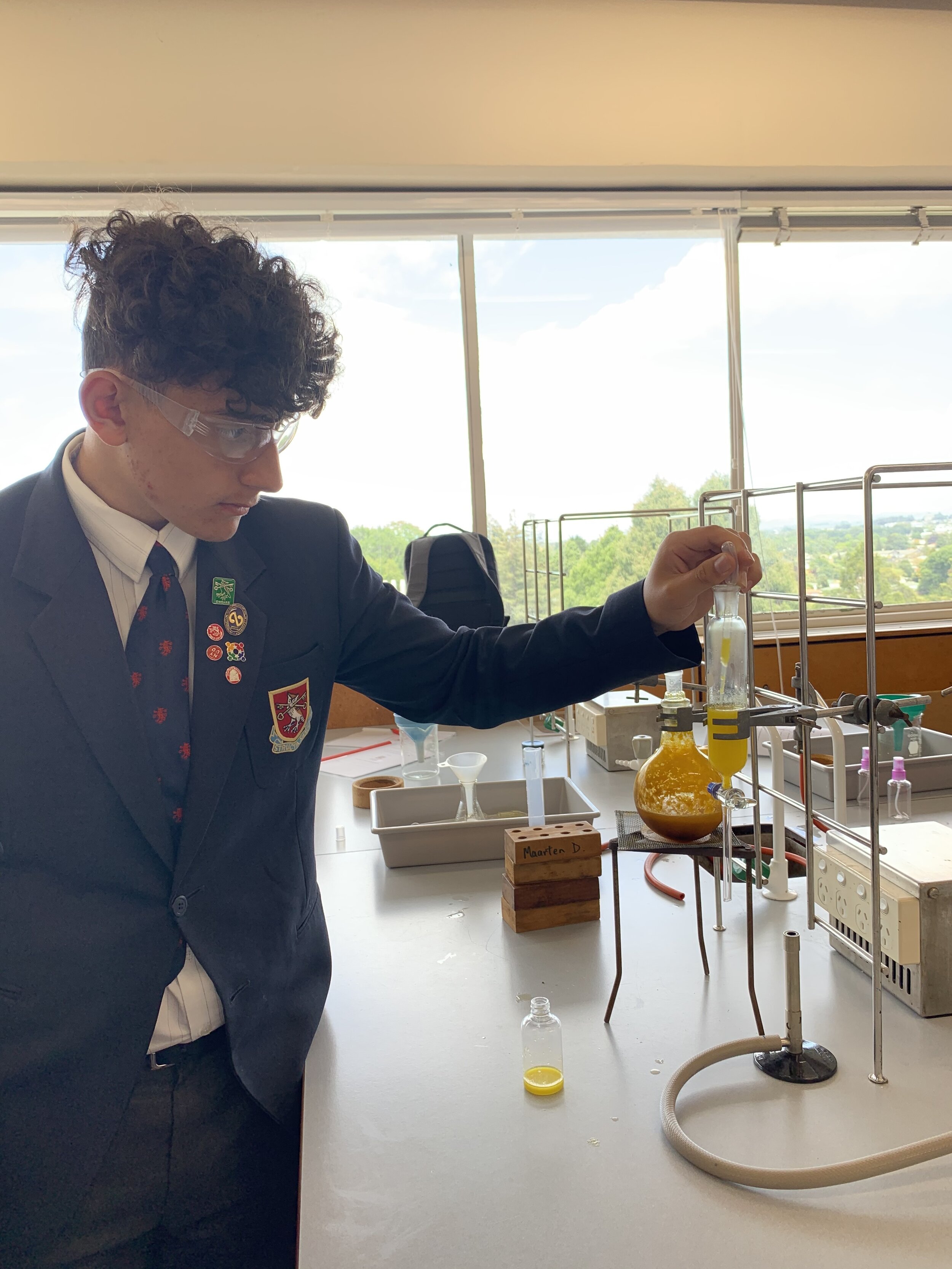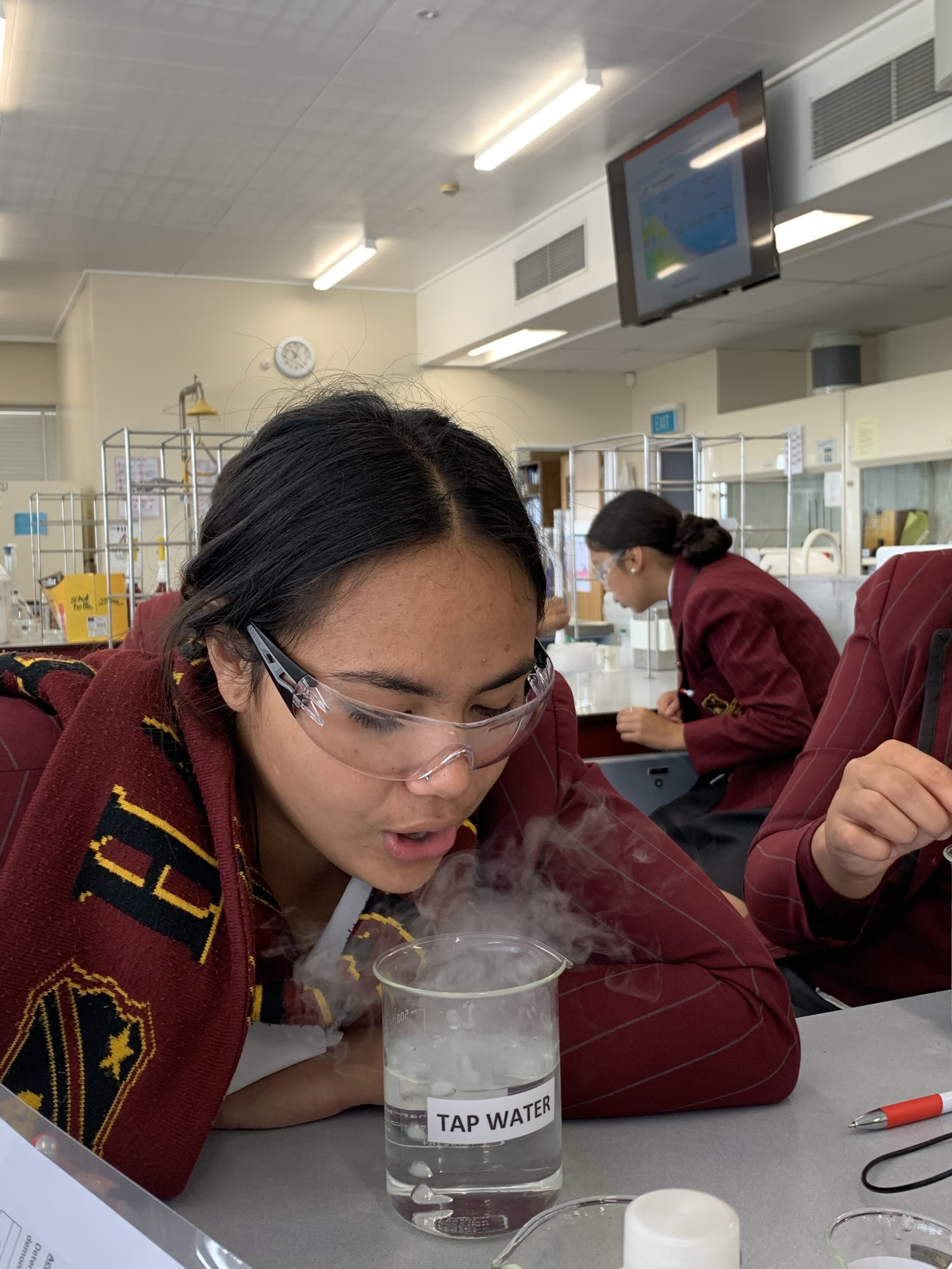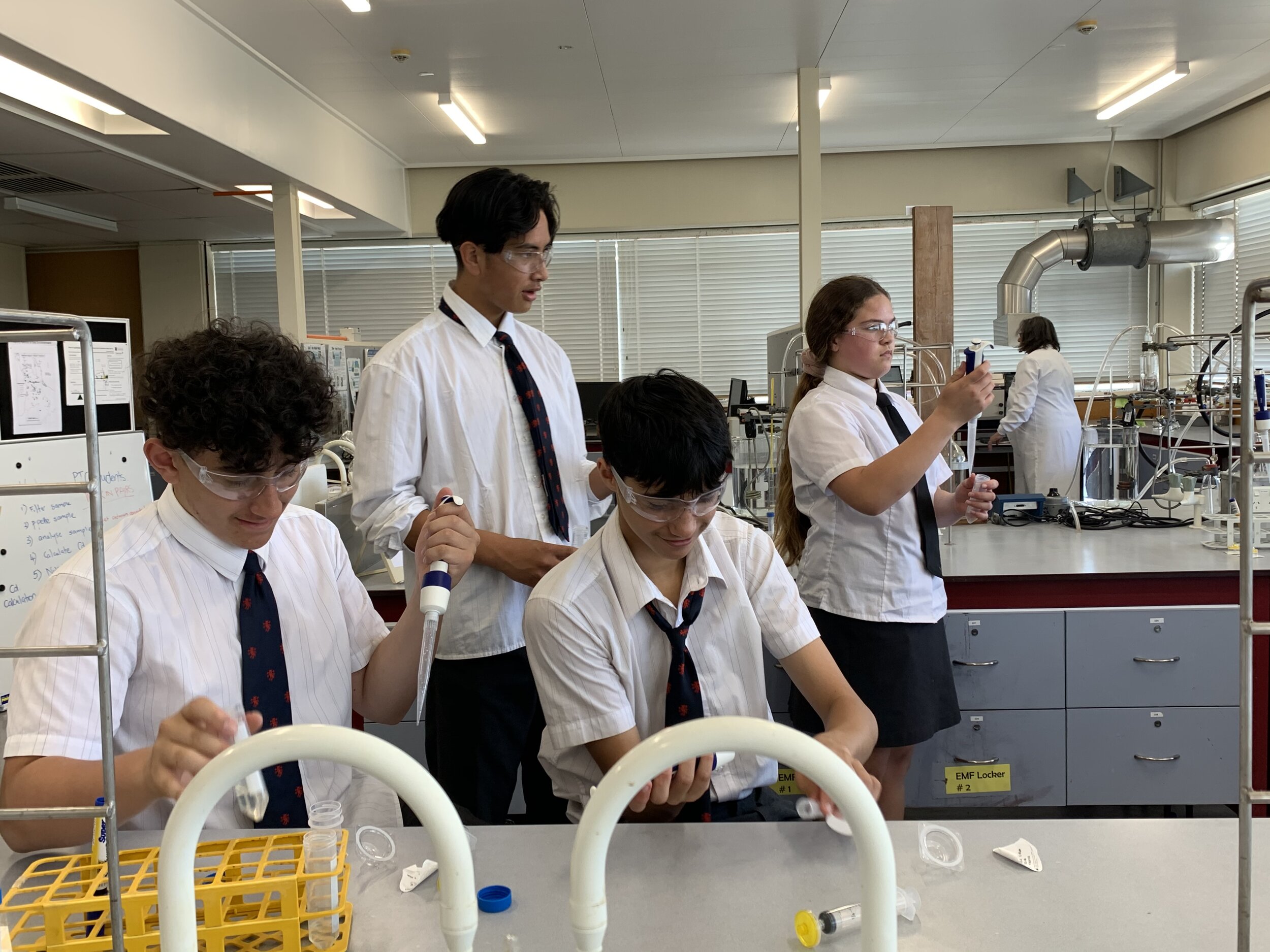Chemistry engagement workshop @Waikato University
Students from Hamilton girls and St Peters Cambridge attended our next workshop. They were an excited bunch, keen to see what life at the University was like and ready to see chemistry come alive. Annie and Martina from Waikato’s chemistry department set the context with Rewa (Maori mentor) and Achatz from STEM Pasifika and Maori group motivating and challenging the students to rise and achieve their ful potential.
Students were here to learn about the human impact of climate change on the environment and to create more sustainable environmental products.
Research reports that acidification alters seawater chemical speciation and biogeochemical cycles of many elements and compounds. One well-known effect is the lowering of calcium carbonate saturation states, which impacts shell-forming marine organisms from plankton to benthic molluscs, echinoderms, and corals. Many calcifying species exhibit reduced calcification and growth rates in laboratory experiments under high-CO2 conditions.
Ocean acidification also causes an increase in carbon fixation rates in some photosynthetic organisms (both calcifying and noncalcifying). The potential for marine organisms to adapt to increasing CO2 and broader implications for ocean ecosystems are not well known; both are high priorities for future research. Although ocean pH has varied in the geological past, paleo-events may be only imperfect analogs to current conditions.

